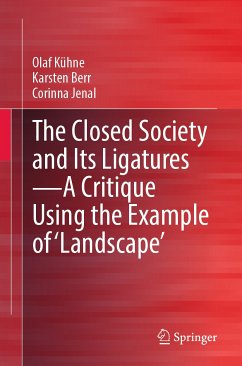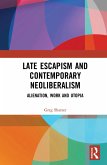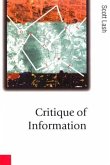In the face of great challenges, utopian thinking is currently in vogue. The fact that utopias, with their ideas of an idealized target society, are not compatible with the basic features of an Open Society was already pointed out by Karl Popper in his book 'Die Offene Gesellschaft und ihre Feinde' (The Open Society and its Enemies) under the impression of National Socialism and Stalinism. In the present book, further forms of Closed Societies and the principal similarities (and differences) of their construction are examined. This is done by drawing on Ralf Dahrendorf's concept of life chances, in which he deals with the interaction of options and ligatures. The ambivalence of Dahrendorf's understanding of ligatures, since they restrict options on the one hand, but also give them meaning on the other, is resolved by a threefold differentiation: into ethical and moral, internally and externally directed, and explicit and implicit ligatures. While the former are capable of enabling life chances, the latter tend to limit them. Based on this, the authors elaborate on the landscape (side) consequences of different Closed Societies and how ill-suited they are for dealing with current challenges. The authors Dr. Dr. Olaf Kühne is professor of Urban and Regional Development at the University of Tübingen. Dr. Karsten Berr is a research associate in the research group on Urban and Regional Development at the University of Tübingen. Dr. Corinna Jenal is an academic councillor in the research group on Urban and Regional Development at the University of Tübingen.
Dieser Download kann aus rechtlichen Gründen nur mit Rechnungsadresse in A, B, BG, CY, CZ, D, DK, EW, E, FIN, F, GR, HR, H, IRL, I, LT, L, LR, M, NL, PL, P, R, S, SLO, SK ausgeliefert werden.









